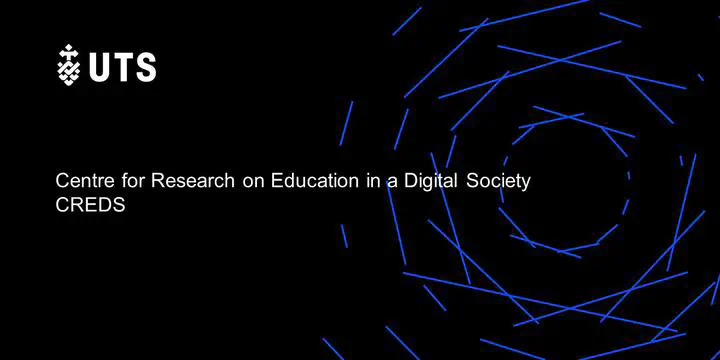The Launch of UTS CREDS: Trust, Truth, and Knowing through the Pandemic - The Digital Learning Challenge
 Image credit:UTS
Image credit:UTSAbstract
Learning and technology have been defining features of global pandemic responses.
The pandemic has brought into stark relief how engagement with evidence and science, digital and social media, and public health systems intersect, to shape our views and activity. Society has witnessed the central of role of education and learning in terms of understanding gaps in knowledge, and how to support citizens to learn effectively, in order to navigate trust, truth, and knowing.
Digital technologies are intertwined with this learning. They shape our education needs, how we navigate trust on social media, understand complex data, and engage with critical and creative thinking when learning and work are conducted from home. They also offer opportunities, for understanding these learning needs, sharing knowledge, building trust in communities, and technology enhanced teaching to engage with new complex information and data.
How do we navigate truth, trust, and knowledge through crises like a pandemic? What role does digital technology play in spreading low quality information, or promoting high quality evidence and discourse? How do people understand their own and others’ knowledge, and its limitations, in uncertain and changing environments? What learning needs has the pandemic highlighted? And how might digital technologies address these more learning needs?
As we continue to navigate COVID-19 and other contradictory problems of sustainability, we must ask some fundamental questions and seek out new solutions. Join us in our first public conversation to launch the Centre for Research on Educational in a Digital Society (CREDS) in the Faculty of Arts & Social Sciences at UTS.
We're delighted to launch the centre formally at this online panel discussion.
Read more about the centre and its history at UTS, and explore our research.
Read our launch report where we set out some of our thinking around issues of credibility and trust in digital learning through the pandemic, and invite you to join the conversation.
